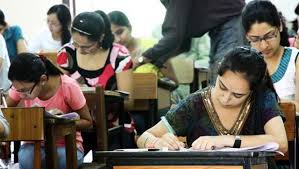Are growing board percentages in school exams helping IIT aspirants?
Mumbai: There has always been a question on whether the performance of the students in the board examination is a crucial parameter for determining whether the eligibility of a student for the JEE for entry

Mumbai: There has always been a question on whether the performance of the students in the board examination is a crucial parameter for determining whether the eligibility of a student for the JEE for entry into the coveted Indian Institutes of Technology.
While that debate continues, there has been a trend of state boards across the country awarded higher percentages to students appearing for the exams, a finding that raises questions on whether the rise is in order to facilitate entry of more students into the IITs.
According to a report in Times of India, there is an increase in the average percentage scored by students appearing for the engineering entrance tests, as recorded by different boards.
Whether they are students from the Maharashtra State Board of Education or from the West Bengal Board, the average score of students who appeared for JEE (Main) went up by 5 percentage points from 2014 to 2015 and by 8 percentage points from 2013 to 2014.
Similarly, the average board percentage of those from Maharashtra who were among the one lakh shortlisted for JEE (Advanced), went up from 86 per cent to 89 per cent in the same period. In Bengal, the corresponding figure rose from 86-87 per cent to 90 per cent.
These two boards are not the only cases. There has been growth in the average percentage score of the students from all across the boards.
While scoring 99-point-something in the all-important Class XII board exam was an unattainable task earlier, it has now become a routine phenomenon. This has raised many questions over the manner in which students are being assessed.
Except three to four boards in the north-east, all the other boards have recorded a growth in the average percentage scored by students who were taking the engineering entrance tests.
Average scores of students from CBSE and CISCE also went up by 2-3 per cent in the three years between 2013 and 2016.
However, the administrators of the board deny that marks are being alloted to students liberally.
Gangadhar Mhamane, chairperson, Maharashtra board, told TOI, "Inflation of marks in our board is not happening. We award grace marks only to students with special needs and sports persons. In fact, students prefer the CBSE and ICSE schools as students from those schools are known to get higher scores. In the state board, only 20 marks are assigned for internal exams which are given by the schools."
There have been speculations about the weightage which IITs, NITs and other centrally-funded technical institutes (CFTIs) give to board scores while calculating all-India ranks of students in JEE (Main) is responsible for class XII exam assessment getting more liberal.
Since 2013, the IITs have changed their eligibility criteria to declare any student with 75 per cent and above or falling in the top 20 percentile of their boards as eligible for an IIT seat, provided they clear the JEE.
As per reports, the chairperson of the JEE (Main) apex board, Ashok Misra based on the findings of this committee, which were submitted to MHRD, had recommended that board scores should not be reputed while granting all-India ranks.
He added, students scoring 75 per cent or 65 per cent marks in board should be fitted into the eligibility criteria as this was a better way of filtering students than giving weightage.